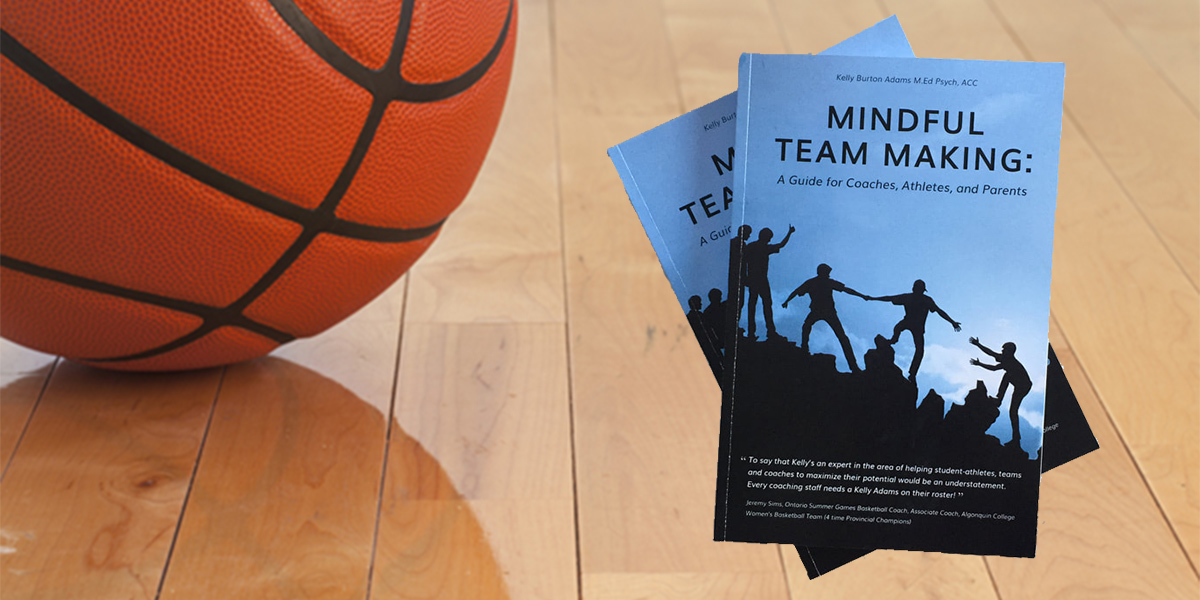
The Role of Parents in the Young Athlete’s Pursuit of Sports
Guest Blog by Kelly Adams, M.Ed Psych, Accredited CTI Co-Active Coach
As a Mental Performance Coach and former therapist who has worked with families for more than two decades, I am often asked about whether or not there is a legitimate role for parents on the journey to excellence in sports. Without hesitation, I say a resounding yes! But much like the case of parenting any child, the role must evolve and change as each developmental stage occurs. Recently, I launched my first book “Mindful Team Making: a Guide for Coaches, Athletes, and Parents” (Oct.2017) and there is a whole section on this topic that parents will find extremely useful as they accompany their athletes along the way.
In the early years, one legitimate and important role parents should be involved in is the discovery of skilled coaches who can introduce children to sports in a way that promotes growth, discipline, and a genuine love of the game. This is key at this initial stage, because whoever this first coach is will have a profound effect on the perspective that your child develops about both teamwork and sports. While it is true that over the course of their lives, our offspring will have to deal with many different types of people, (not all pleasant), we can have some control over their initial experiences, as they are not fully formed and confident enough yet to be the best judges of what may or may not be good for them. So do your homework, ask other parents about their experiences, and watch different coaches in action.
In the tween/teen years, however, generally speaking parents need to take more of a back seat. By this stage of development, athletes are forming their own identities, are more clear on their comfort levels, and can certainly more accurately articulate when there are issues or problems. Our role then is to listen attentively and pick up on cues when all is not going well. An example of how this process might evolve is when you as a parent start noticing that practices and games are no longer enjoyable for your teen, or when there is silence about how things are going with the team and/or the coach. This can indicate a casual conversation with them is warranted, as well as perhaps a few inquiries with other parents on the team. In many recent situations of sexual misconduct between coaches and athletes, for instance, there were usually perceptions and/or questions regarding the relationships formed between the two that could have been further examined, thus preventing ongoing situations of abuse. Knowing whether your club team has policies and procedures in place for such concerns, and/or if they have a coaches Code of Conduct they follow is prudent as well.
By the time your athlete gets to the High School level of play and indicates a keen desire to play college or university sports, the pathway there should be much more self-directed, although mentors, high level athletes, academic advisors and even career coaches can all be part of the process. After spending many years working with this level of athlete, I can say that it’s better to have more people to consult with than to leave it all up to sports coaches who are interested in scouting your young adult athlete. And for parents, I strongly advise not fully letting go of connection with your athlete, because the first year or two away from home, with many new responsibilities and the new experience of being only a rookie on the team will all be challenging. Add to this reality the fact that many youth who have the genetic predisposition towards anxiety or depression often develop these illnesses between ages 16 and 25, suggests it is wise to remain attentive and involved while leaving lots of room for independent decision-making and ownership of daily responsibilities like attending classes, organizing meals, and managing finances.
In terms of the actual sport your athlete is participating in, the best overall stance for you to take is that of a huge fan and supporter, not an additional coach, even if you’ve previously excelled at this sport yourself. Of course, if your advice and expertise is requested….. that’s another story!
There is a wholesome and heathy role for parents to take on this “ team” of coaches, athletes, and parents, and if you are interested in gaining a good perspective on it, go to www.highperformancecoachkelly.com and order the book online. Kelly is also available for working directly with all three groups and can be reached for consultation at 613 407 7487. She currently resides in Ottawa, Ontario.
